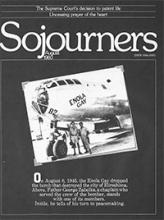The Discipline of the Mountain: Dante's Purgatorio in a Nuclear World. By Daniel Berrigan. Illustrations by Robert McGovern. Seabury Press, 1979.
Berrigan writes that he went to the Purgatorio in search of "ways of imagining our plight." Looking for new vision in an old work is a familiar activity; but when it means reforging that work to make a new vision, it becomes complicated for both writer and reader. Unlike translation, an "imitation" does not replace the original text. Instead it offers a new work through which the old text is still visible; to read it is to read two texts. Its author writes in the confidence, or hope, that the vision of the older text is still valid, assuming that for his readers as for himself the vision's fundamental values remain true and compelling.
But are we close enough to Dante to make this complicated process work? That depends on what we need from him. Berrigan needs terms in which to grasp the barrenness and violence of a way of life that constantly threatens war. Wanting Christian terms for this, terms powerful to Christian consciences, he naturally turns to Dante as the great poet of the Christian vision. And certainly Dante's world was no less violent than ours.
Nevertheless, on one crucial point Dante's vision is rejected. Dante believed in two authorities, two roads--the spiritual for spiritual affairs, the secular for secular. Berrigan cannot accept half, or more than half, of this faith. For him the imperium, the secular authority, has been irredeemably compromised; and the church suffers from the same corruption, insofar as it has allied itself with the state-at-war and attempts to guide it.
Read the Full Article

